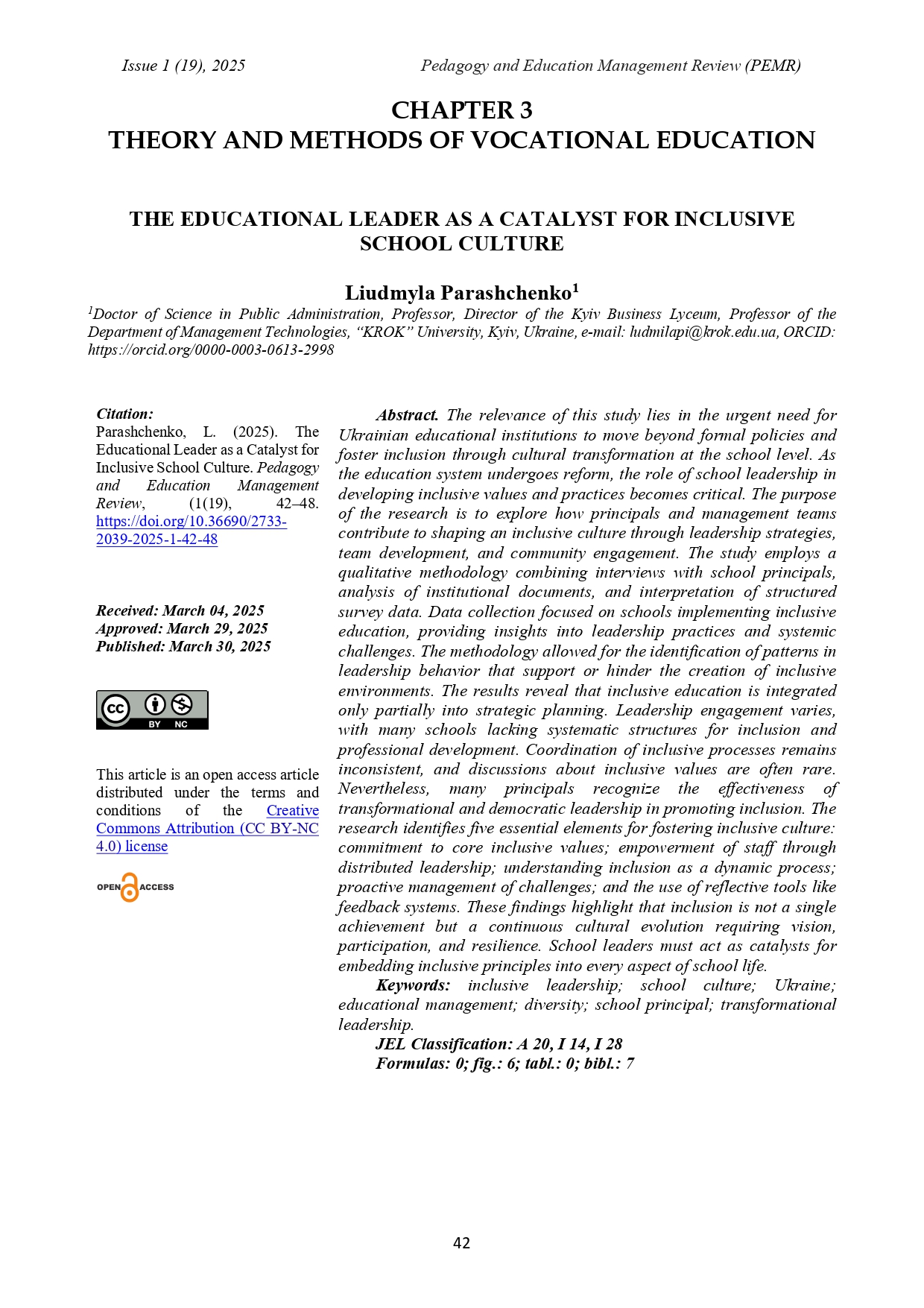THE EDUCATIONAL LEADER AS A CATALYST FOR INCLUSIVE SCHOOL CULTURE
DOI:
https://doi.org/10.36690/2733-2039-2025-1-42-48Keywords:
inclusive leadership, school culture, Ukraine, educational management, diversity, school principal, transformational leadershipAbstract
The relevance of this study lies in the urgent need for Ukrainian educational institutions to move beyond formal policies and foster inclusion through cultural transformation at the school level. As the education system undergoes reform, the role of school leadership in developing inclusive values and practices becomes critical. The purpose of the research is to explore how principals and management teams contribute to shaping an inclusive culture through leadership strategies, team development, and community engagement. The study employs a qualitative methodology combining interviews with school principals, analysis of institutional documents, and interpretation of structured survey data. Data collection focused on schools implementing inclusive education, providing insights into leadership practices and systemic challenges. The methodology allowed for the identification of patterns in leadership behavior that support or hinder the creation of inclusive environments. The results reveal that inclusive education is integrated only partially into strategic planning. Leadership engagement varies, with many schools lacking systematic structures for inclusion and professional development. Coordination of inclusive processes remains inconsistent, and discussions about inclusive values are often rare. Nevertheless, many principals recognize the effectiveness of transformational and democratic leadership in promoting inclusion. The research identifies five essential elements for fostering inclusive culture: commitment to core inclusive values; empowerment of staff through distributed leadership; understanding inclusion as a dynamic process; proactive management of challenges; and the use of reflective tools like feedback systems. These findings highlight that inclusion is not a single achievement but a continuous cultural evolution requiring vision, participation, and resilience. School leaders must act as catalysts for embedding inclusive principles into every aspect of school life.
Downloads
References
Ainscow, M., Booth, T., & Dyson, A. (2006). Improving schools, developing inclusion. Routledge.
Booth, T., & Ainscow, M. (2011). The Index for Inclusion: Developing learning and participation in schools (3rd ed.). Centre for Studies on Inclusive Education.
Harris, A., & Jones, M. (2019). Leading learning and capacity building: The role of leadership practices. School Leadership & Management, 39(4), 276–283.
Ryan, J. (2012). Struggling for inclusion: Educational leadership in a neoliberal world. Information Age Publishing.
Slee, R. (2011). The irregular school: Exclusion, schooling and inclusive education. Routledge.
Sysoieva, S., & Dolynska, O. (2021). Inclusive education in Ukraine: Challenges for school leadership. Ukrainian Journal of Educational Management, 5(2), 22–31.
UNESCO. (2020). Global Education Monitoring Report: Inclusion and education – All means all. https://unesdoc.unesco.org







